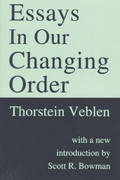Question
Please answer the following questions. Thank you so much in advance. 2. The Arab Spring was a hopeful time where it seemed that oppressive regimes
Please answer the following questions. Thank you so much in advance.
2. The Arab Spring was a hopeful time where it seemed that oppressive regimes were being overthrown for more democratic institutions.The promise has not been fulfilled.Since 2011, when Egypt, Libya, Tunisia all had regime change, there has been a backlash in Egypt (the army took over), civil war in Syria, on-going conflict in Yemen with Saudi Arabian involvement, and the rise of ISIS/ISIL in Syria and Iraq.What do you see as the biggest issue in the Middle East and why?How does this issue affect the world currently and what do you think are the issues that will carry over to other parts of the world or the future?How important is this issue? How do you propose the world/U.N./NATO/U.S. (choose one) should approach this issue?
3. Countries such as Egypt and Pakistan get a varied amount of aid from the U.S.Per a deal from 2009, Pakistan should get about 1.5 billion per year (which they apparently just got this year), but many years they have gotten less.It has become fashionable to criticize spending on foreign aid, so my challenge to you is to justify either spending money on aid or not spending the money.HOWEVER, regardless of which option you choose, you must weigh the spending versus what you are accomplishing.This is a critical thinking exercise and you only get full credit if you actually can justify your answer.Be sure to consider the following -- the cost to the U.S. (how much is it in terms of our spending relative to our GDP and our budget? Hint:Find out how much the U.S. spends on foreign aid relative to our budget or GDP); What does the U.S. get out of giving money?What does the U.S. EXPECT to get out of spending money?Is it a good deal? -- In other words, do we get our money's worth?You must consider these types of critical thinking questions and refer to them in your answer.Answering solely on ideological or a polemic basis will not get full credit.For this instance I mentioned Pakistan, but it can apply to Egypt, Israel or any foreign aid, so if you need to refer to other countries that we assist to back up your response, that is fine.
1. What do you think is the biggest challenge that the U.S. faces in the next 20 to 50 years?How about the rest of the world?What is the biggest challenge for the world as a whole?
2. We have seen several countries, notably Japan, Korea and China who have moved from various economic states to become very powerful economies.In all three cases, it took about 50 years to modernize and become an economic or world power.What do you think makes the difference?Is economic success a cultural phenomenon or a governmental phenomenon?
Step by Step Solution
There are 3 Steps involved in it
Step: 1

Get Instant Access to Expert-Tailored Solutions
See step-by-step solutions with expert insights and AI powered tools for academic success
Step: 2

Step: 3

Ace Your Homework with AI
Get the answers you need in no time with our AI-driven, step-by-step assistance
Get Started


